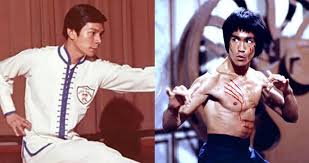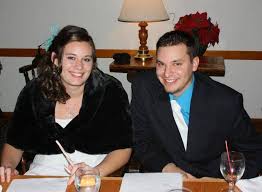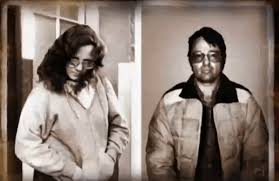In the late 1630s, Anne Hutchinson became known in the Massachusetts Bay Colony as an outspoken religious reformer, earning the ire of male religious leaders.
Puritans in the 17th-century Massachusetts Bay Colony claimed they fled England for religious freedom, but even they found Anne Hutchinson too bold.
Hutchinson, the daughter of a Puritan minister, believed people could establish a personal relationship with God to secure entry into heaven, regardless of their earthly behavior. She preached these ideas around Boston, gathering a following of up to 80 people.
However, her beliefs and the fact that she preached to both women and men angered many male religious leaders in Boston, who felt their power was threatened. They saw her as a dangerous heretic and sought to bring her down.
Who Was Anne Hutchinson?
Anne Hutchinson was born in 1591 in Lincolnshire, England. Her father, Francis Marbury, was a Cambridge-educated Puritan minister known for challenging Anglican authority and being accused of heresy in London nearly 60 years before his daughter faced similar charges in Boston.
Hutchinson grew up influenced by her father’s beliefs and teachings. As an adult, she and her husband William became devoted followers of Puritan minister John Cotton. Hutchinson supported Cotton by spreading his controversial ideas about predestination and free will to other women.
When Cotton decided to flee persecution in England and move to Boston, Hutchinson and her husband followed. In 1634, they and their 10 children started a new life in the Massachusetts Bay Colony.
Her Controversial Religious Ideas
At first, Anne Hutchinson and her family thrived in the New World. Her husband continued his trade, and she worked as a midwife and herbalist. Hutchinson supported John Cotton by holding meetings with women in her home to discuss his ideas.
However, around two years after arriving in Boston, Hutchinson began to draw criticism from leaders like John Winthrop, the three-time governor of Massachusetts who described the colony as a “city upon a hill.” Winthrop saw Hutchinson as a woman of “nimble wit and active spirit, and a very voluble tongue, more bold than a man.”
Hutchinson’s belief that faith in God alone was enough for salvation contradicted Puritan teachings, which emphasized living according to the Bible and performing good works. Male leaders saw her sermons, which began to attract a mixed crowd of 60 to 80 people, as a threat since women were not allowed to speak or teach in public.
In November 1637, Hutchinson was put on trial for heresy. Over two days, she defended herself against Winthrop, who claimed her preaching was “not fitting for your sex.” She was accused of being “more of a Husband than a Wife and a preacher than a Hearer; and a Magistrate than a Subject.”
Despite her defense, Hutchinson sealed her fate by declaring that God had spoken to her directly through an “immediate revelation” and would punish those who sought to convict her. This statement was seen as blasphemy, and she was promptly declared a heretic and banished from Boston.
Even her mentor, John Cotton, turned against her. He criticized Hutchinson’s meetings as “promiscuous and filthy coming together of men and women without Distinction of Relation or Marriage,” and her ideas as spreading “like gangrene and will eat out the very bowels of religion.”
Forced to leave the city, Anne Hutchinson, her family, and 30 other families set out for Rhode Island in March 1638. However, their trials were not yet over, and Hutchinson and many of her children would soon meet a tragic end.
The ‘American Jezebel’s’ Death At The Hands Of Siwanoy Warriors
Although Anne Hutchinson had left Boston, she hadn’t escaped the Puritan leaders’ wrath. Just a year after she and her family settled in Rhode Island, three Puritan ministers from Massachusetts visited her. They demanded she recant her beliefs, and when Hutchinson refused, they warned her that Massachusetts would soon take over Rhode Island.
After her husband died in 1642, Hutchinson decided to move her family further from Massachusetts and brought them to New York to escape the Puritans. Tragically, this led to the demise of most of her family members.
In August 1643, Siwanoy warriors, possibly encouraged by the Puritans and angered by white settlement on their lands, attacked Hutchinson’s homestead. They massacred Hutchinson and six of her children and abducted her nine-year-old daughter, who had been picking berries nearby.
Back in Boston, news of Anne Hutchinson’s death was met with satisfaction. John Winthrop called her an “American Jezebel” and an “instrument of Satan.” Reverend Thomas Weld proclaimed, “The Lord heard our groans to heaven and freed us from our great and sore affliction.”
However, history has since viewed Anne Hutchinson more kindly. Today, she is seen as a proponent of religious freedom and a woman ahead of her time.
Her legacy lives on through her descendants, which include U.S. presidents Franklin D. Roosevelt, George H.W. Bush, and George W. Bush, as well as Senator Mitt Romney, Associate Justice Oliver Wendell Holmes, Jr., and Chief Justice of the Supreme Court Melville Weston Fuller.
After reading about the inspiring life and untimely death of Anne Hutchinson, explore the mystery of the Roanoke colony or learn about the Darién Scheme, Scotland’s failed attempt to build a colony in the Americas.





